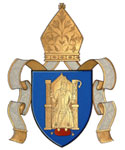 |
 |
News
Sermon preached in Enniskillen Cathedral at a Service of Remembrance and Reflection of the 25th Anniversary of the Enniskillen Bombing (Part 1)
May all that I say to you be in the name of "the God and Father of compassion and the God of all comfort, who comforts us in all our troubles, so that we can comfort those in any trouble with the comfort we ourselves have received from God"
(2 Cor. 1:3-4)
I want to say at the outset how great a privilege it is to preach on this occasion. A great privilege and a great responsibility. I know that for many of you today will be a difficult one in a very personal way. I know that today we walk, as it were, on holy ground; on ground hallowed by twenty-five years of prayer and perseverance.
The Enniskillen bombing also raises many questions which are amongst the most difficult for Christian people to address. The problems posed by the suffering of the innocent, or the place of God in a world where pain and injustice are all too real, are particularly difficult to think about clearly when our eyes are blinded by tears and our hearts are breaking with sorrow.
Indeed without a belief in an ultimate grace and goodness they would be impossible to bear or to consider at all.
However, we are gathered here in the presence of the God of all goodness and all grace as we remember and reflect.
Remembrance.
Each one of us, who are old enough, in this Cathedral today, will remember the events of the 8th of November 1987 in our own way. Many of us, including me, experienced those events only at a distance. I was living and working in Belfast at the time, but, as you might imagine the reverberations of that day were felt very keenly even in that city, and even amongst those who thought that they were hardened against the report of every act of violence.
Others of you who are from in and around Enniskillen will have experienced the bombing much more personally. Probably you knew some of those who were killed or injured; and the pain and grief of the day were much closer to home. You felt it in your families and in your marrow.
And others of you were tragically closer still, and to this day you bear the marks of bereavement or of acute physical suffering as constant reminders. Remembrance is your daily, even hourly companion.
But for all of us on 8 November 1987, whether near or far from Enniskillen, we were aware that something almost indescribably depraved had happened. That people who had gathered for a simple and dignified act of remembrance, had now, through some perverted ingenuity, themselves suffered the same bloody devastation that had been visited on those who they had gathered to remember.
Today is a day when we remember those who were themselves remembering when they were murdered, and we try to do so with the same simplicity, gratitude and dignity as they showed when they gathered that day at the War Memorial.
In the early 1990s' I worked alongside one of the young people who had been very seriously injured in the bombing. In every sense that young man was just an ordinary person, setting out to do his best in his first job; enjoying the new experiences that working life brings, and, now looking back on it, bringing to his workplace a joy in living which perhaps only someone who was so near death can have. What struck me about him most was not his bitterness but his normality.
In my experience those who have been subjected to the horrors of violence, whether injured or bereaved, do not ask that their experience is constantly remembered by everyone else in every waking hour. But they do ask that they and their loved ones should not be forgotten.
Three words from the Old Testament reading "And God remembered" In that case He remembered Noah, who with his family felt lost and abandoned (literally at sea) following a great act of destruction. And God remembered them. In the Bible when it is said that "God remembers", it is always recorded that God also acts. In the story of Noah He acted to rescue His servants and to promise them safety and security. And His promise is true today.
The scope of His acting is very wide, and the arc of His justice goes far beyond our horizons, and we do not know how it will all be resolved; but we know that somehow it will be. All is remembered, so that all may be accounted for, one way or another.
And I think that today we should also remember the family of David Black; all those near to him who have been plunged into the same bewilderment of grief and pain by another act of barbarism.
They are in our prayers, and the sight of their suffering only increases our resolve to make our land a place where every act of violence perpetrated in the name of a political cause is recoiled from in horror, and that those who commit such acts understand that they represent no-one and have achieved nothing and that the whole community is ashamed of them.

The Bishop of Clogher and the Secretary of State for Northern Ireland The Rt Hon Theresa Villiers

The Rt Revd John McDowell Bishop of Clogher giving the address

The Cathedral Choir sings the Anthem With songs they went into battle by William McBride

The Bishop of Clogher gives his address to the congregation in the cathedral